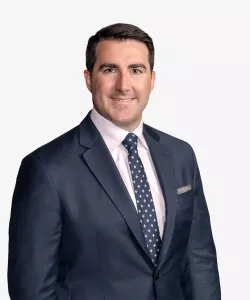Supreme Court FCA Scienter Ruling Revives Fraud Lawsuits Against Safeway and SuperValu
Headlines that Matter for Companies and Executives in Regulated Industries
Supreme Court FCA Scienter Ruling Revives Fraud Lawsuits Against Safeway and SuperValu
On Thursday, the US Supreme Court issued its highly anticipated ruling regarding the threshold of liability under the False Claims Act (FCA). More specifically, the Court considered whether the FCA requires that defendants subjectively believed their claims were false, or whether defendants need only have an objectively reasonable interpretation of law or regulation to negate intent. In a unanimous opinion, the Supreme Court held that “what matters for an FCA case is whether the defendant knew the claim was false,” thus determining that the subjective standard applies.
Whistleblowers sued Safeway Inc. and SuperValu Inc. for allegedly offering prescription drugs at discounted prices to customers while improperly charging higher rates to the government in violation of federal law, which requires pharmacies to bill Medicare and Medicaid at the same prices as the general public under the pharmacy’s “usual and customary” rate.
In response, the companies argued that the Medicare and Medicaid billing requirements were unclear and their conduct was supported by an “objectively reasonable” reading of the law. The Seventh Circuit agreed and found that neither pharmacy acted with the requisite scienter because they made an “objectively reasonable” interpretation of an ambiguous policy, adopting the standard from Safeco Insurance Co. of America v. Burr, 551 U.S. 47 (2007).
The Supreme Court, however, held that the Seventh Circuit erred in applying the Safeco standard to the False Claims Act because the Fair Credit Report Act (FCRA) analyzed in Safeco involved a different “willfully” standard than the FCA. The Court explained that an assessment of a defendant’s subjective beliefs — not what an objectively reasonable person may have known or believed — about potential wrongdoing is required based on the text of the FCA’s scienter standard, as well as its common law underpinnings.
The cases are United States ex rel. Proctor v. Safeway Inc., Case No. 22-111 and United States ex rel. Schutte, et al. v. SuperValu Inc. et al., Case No. 21-1326 and the Supreme Court’s opinion can be found here. Like other recent FCA opinions, this opinion was unanimous and authored by Justice Thomas.
Elizabeth Holmes Reports to Prison in Texas To Begin 11-Year Sentence
This week, Elizabeth Holmes, the disgraced founder of the blood-testing company Theranos, reported to FPC Bryan in Texas, a minimum-security prison camp for women, to start her 11-year and three-month sentence for defrauding investors. Two weeks prior, the Ninth Circuit denied Holmes’ request to remain out of prison pending the outcome of her appeal. Holmes leaves behind her significant other, a two-year old son born shortly before the start of her trial, and a three-month-old daughter.
Thernos’ former chief operating officer, Ramesh “Sunny” Balwani, likewise sought to delay reporting to prison to serve his nearly 13-year sentence pending the outcome of his pending appeal. The Ninth Circuit similarly denied Balwani’s request, and he reported to FCI Terminal Island prison in San Pedro, California, on April 20, 2023.
Both Holmes and Balwani were also found jointly and severally liable for $452 million owed in restitution to 14 investors in Theranos, including nearly $100 million to RDV Corp., an investment firm that manages assets for the Devos family, $125 million to Rupert Murdoch, $14.5 million to Safeway, and $40 million to Walgreens.
The case is United States v. Elizabeth Holmes, et al., Case No. 5:18-cr-00258 (ND Cal.) and Holmes’s appeal is Case No. 22-10312 in the Ninth Circuit.
Whistleblower Lawsuit Against Vascular Center and Medical Providers Moves Forward
Two whistleblowers filed a qui tam action in the Southern District of Georgia, alleging that Genesis Vascular of Pooler LLC, a state-based vascular procedure center, and various medical providers operated a kickback scheme dating back to December 2016.
The complaint, which was filed in May 2018 and subsequently unsealed in April 2020 after the state of Georgia and the federal government declined to intervene, alleges that Genesis paid kickbacks to providers in exchange for referrals for millions of dollars of unnecessary vascular procedures that were covered by Medicare and Medicaid. According to the complaint, many of the claims were submitted for vascular procedures that were not supported by the patients’ symptoms, medical histories, or records.
A number of defendants in the case moved to dismiss the case, arguing that it was a “collective pleading style” complaint which lacked specificity regarding each individual party’s conduct. The court, however, rejected those assertions and found the complaint to be sufficiently detailed, explaining that the relators had sufficiently placed each defendant on notice of their alleged individual conduct in the fraudulent scheme and how each defendant is liable under each count. Genesis failed to appear in the case and a default judgment was entered against it.
The lawsuit is United States, et al. v. Genesis Global Healthcare, et al., Case No. 4:18-cv-00128, in the US District Court for the Southern District of Georgia.
Contacts
- Related Practices




